By Sharadha Bain @DearSharadha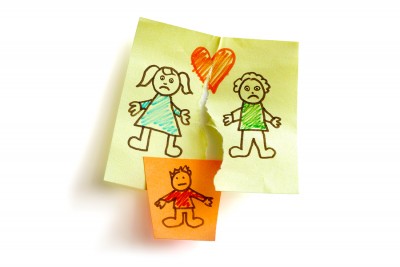
Previously, Sharadha Bain discussed the high cost of an ‘invisible divorce’ for the marriage partners. Here, she speaks to the long, dark shadow it casts upon the lives of the children
“My spouse and I have nothing in common, but we’re staying together for the sake of the children.”
“I can’t stand the sight of my husband, but what to do, I have to think of the children.” “He is disrespectful / drinks / gambles / visits prostitutes / hits me… but it would be selfish of me to leave. The children need their father after all.”
There seems to be a widespread misconception about what children need. Truth: children thrive in happy, loving families. The corollary to this is another inescapable truth:
Children suffer when their parents are estranged from each other.
Suffering through an unhappy marriage is seen as noble in South Asian cultures – in large part because it is believed that staying together is always better for the children. These beliefs have gone unquestioned, keeping countless unhappy couples together in the limbo of an ‘invisible divorce’.
THE ADULT CHILDREN OF WARRING PARENTS 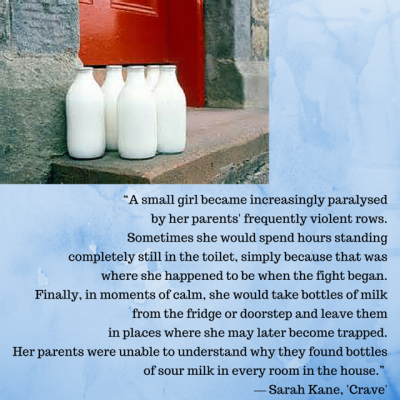
Walking to his office in the morning, Arun often sees children headed for school with one of their parents. He wonders what they are talking about. Is the mom pouring out her woes into her son’s ears? Is the dad making jokes and pretending that ugly fight hadn’t happened over breakfast?
Arun’s childhood played out against the backdrop of his parents’ arguments. “They would try to hurt each other through various strategies. They both loved me very much, but they were so preoccupied with their hurt and disappointment in each other, I kind of faded into the background.”
Sania, approaching 50 and engrossed in her career in marketing communications, still finds visits to the family home very difficult. She can’t relax around her parents, fearing a row could erupt any moment. She is finely attuned to the nuances in their relationship and is always on the lookout for early signs of trouble.
She remembers, “Their arguments can rage for hours. The worst is when they begin arguing in the car. I feel trapped with no possibility of escape.”
WHEN HOME IS AN UNHAPPY PLACE
For many children, home is a place filled with raised voices, the artillery of accusations, banged doors and retreating footsteps, sobbing trailing off into awful silence…I am not speaking here about ordinary rows between couples that are usually resolved fairly quickly, with the relationship returning to a baseline of affection and harmony. Instead, in some families, the parents are locked into a state of unceasing conflict that is highly destructive. With some couples, it is open warfare. The resentment and anger spill out in sarcasm and criticism, belittlement and denigration, in repetitive arguments and blaming. With others, there is a covert marital cold war. Beneath a veneer of “there-is-no-problem” normalcy, the couple has turned away from each other. Instead of intimacy, there is indifference and coldness, disengagement and distance.
Consider Meera: “My parents did not relate to each other – they related to the children. There were no big arguments or fights between them – but it was clear there was nothing good either. There was just nothing.” Parents’ marital wars echo in the lives of their children well into adulthood and beyond.
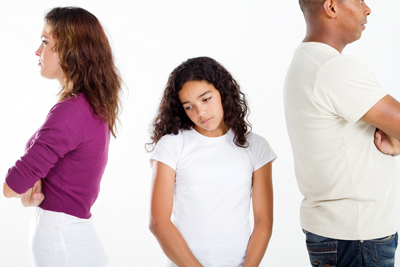
HEALTHY VS UNHEALTHY CONFLICT
Research shows that children raised by parents who are caring partners to each other grow up with feelings of safety, hope and possibility. They are emotionally resilient all through their later lives, even weathering severe trauma such as acts of violence or terrible misfortunes with more grit and hope than those who grew up like Arun, Sania or Meera. In fact, the occasional argument in such homes has a positive impact on children – it reassures them that difficulties and disagreements can be worked through. Further, it teaches that conflict doesn’t threaten the love or caring in the relationship, but can be a creative process that deepens intimacy. But what about children who experience the opposite – those like Meera, Arun or Sania?
WHEN THE GROUND OF TRUST IS SHATTERED
A painful constellation of interlocking thoughts, feelings and beliefs is created within children who grow up amidst an invisible divorce. These undermine self-esteem, relationships, and key emotional capacities that are needed to thrive in life.
Here are some of the common problems I have observed:
- They carry high levels of anxiety.
- They find it difficult – often impossible – to trust that life can be stable and that good things can last
- They experience chronic tension and worry. There is a deeply entrenched expectation that something is going to go wrong, so better not to relax too much.They haven’t experienced the healthy cycle of conflict followed by resolution – instead, their reality is that things are “bad” and stay “bad”. This creates feelings of despair and hopelessness.
- Many of these efforts can indeed be successful for quite a while – but as there is no base of safety and trust in life, it requires tremendous amounts of energy to sustain and cracks begin to appear.
- Instead of life flowing in a creative and meaningful way, it can feel stressful and like a terrible struggle.There can be a persistent sadness and melancholy from having witnessed the pain of their parents. Many children consciously or unconsciously “carry” their parents’ pain in an act of loyalty.
WHEN THE CHILD HAS TO BE THE ADULT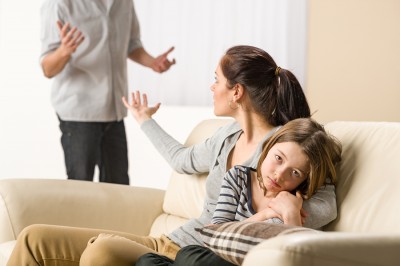
There can be a role reversal whereby the child is burdened by being its parents’ emotional caregiver from a very early age. Instead of the parents leaning on each other and jointly caring for the child, many children end up mistakenly believing their parents are their responsibility – something that should rightfully only happen when the child is a grown adult and the parents are elderly. The child is forced to grow up far too early. The sense of being cared for is lost; what replaces it is worry and emotional pressure. The freedom to find its way forward in life is lost under the crushing pressure of shouldering the parents’ problems.
‘LOVE IS NOT FOR ME’
Their parents’ relationship casts a particularly long shadow across their own relationships. It can be hard to commit or hard to trust that love will last. Many choose not to marry or have children because they don’t wish to pass along the chronic stress they themselves experienced. Some men struggle with impotence, crippled sexually and otherwise by needing to be their mother’s main man.
SHUTTING DOWN TO COPE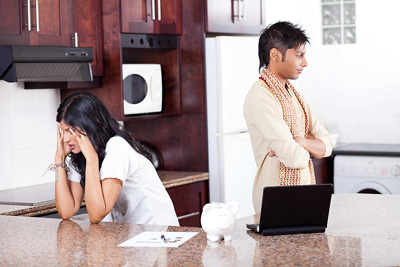
Others will find themselves powerless in the grip of self-destructive patterns of behaviour – the reasons can be complex and varied, but a major cause can be an unconscious loyalty towards the parent they were not allowed to love. Some withdraw deep into themselves to shut out and protect themselves from the chaos and pain around them. “I don’t want to know.” “I don’t care.” “I won’t get involved.” “Nothing will touch me.” Without a lot of therapeutic help, this psychic retreat is extremely difficult to emerge from in later life. Such people allow very little information about reality to enter their awareness – good or bad. They can be singularly lacking in empathy and find themselves isolated as they go through life.
EARLY CONFLICTS LIMIT LIFE
Depending upon their individual temperament and the events of their childhood, each child who grows up amidst the wreckage of their parents’ marriage will both cope and struggle differently. Some have greater capacities than others; there might have been sources of support outside the home – grandparents, teachers, and friends – that offered refuge from the troubles at home. Yet, the strain of growing up with estranged parents always limits the capacity for healthy relationship and often affects other areas of fulfillment and happiness such as career and health. Mental health difficulties loom ahead for children who are both sensitive and find themselves trapped within excessive emotional pressures.
THE BEST INVESTMENT YOU WILL MAKE
“We’re staying together for the sake of the children” is a false solution – it only ends up hurting the children. So what do children really need? Creating a healthy marriage is the best gift you can give your children. Children thrive when they know their parents have a relationship that is characterised by the following qualities:
- warmth
- affection
- mutual respect
- mutual caring.
Many people balk at the idea of paying for therapy or a workshop on relationship skills – but will spend money on electronic gadgets or other material goodies. Emotional health and happiness can’t be bought – but we can learn how to create and cultivate them. I would suggest that this is the best investment one can make.
RENEWAL AND REBIRTH
Sometimes, sadly, therapy can reveal that there is no life left in the relationship. In this case, a legal divorce which is handled with care and mutual respect is far healthier than staying together in the limbo of an invisible divorce. Despite the distress and the shattered dreams, the complications of finances and custodial arrangements, a choice that allows for rebirth and renewal of life is healthier than the hopelessness that is characteristic of the invisible divorce. It allows children to see healthy choices being made, life lived with resolve and courage, the gradual rebuilding of hope and happiness. It gives them the message that while there are not always easy choices, love and happiness are possible when we step forward with trust in yourself and in life, and kindness towards each other.
WHEN PARTNERS ARE TOXIC
The guiding principles need to be very different if there is physical or emotional abuse in the marriage. Here, the children should not be exposed to the abusive partner except under supervised contact. Sometimes, the partner is so toxic that he/she should not be in the children’s lives at all – until they are adults and free to make their own informed choices.
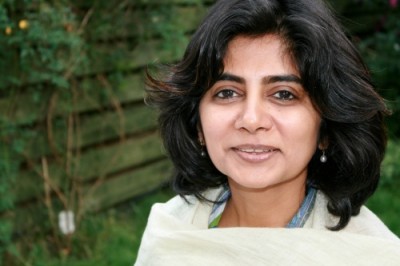
About the Author
Sharadha Bain has helped people for more than 20 years drawing on psychodynamics and spiritual healing. She has an international private practice working with clients from around the world via Skype. She is also an advice columnist through her website: dearsharadha.com.


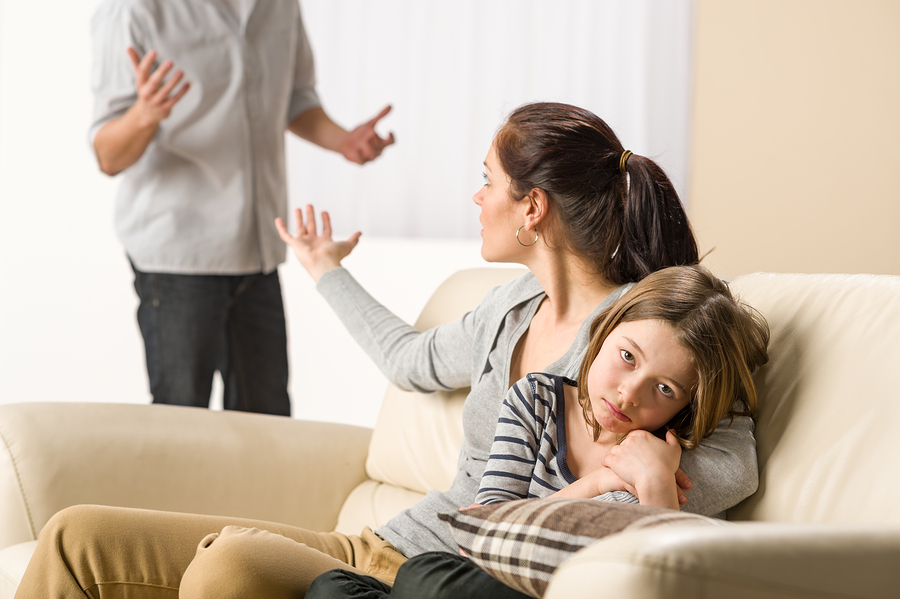
There are no comments
Add yours